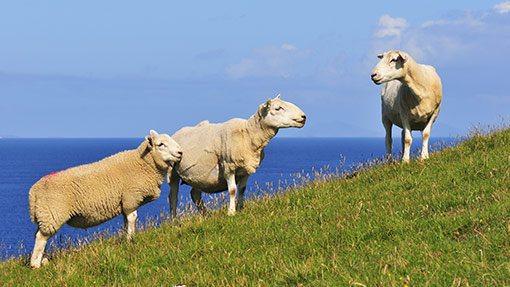Tips on meeting cross-compliance rules if renting grass keep

Farmers who take on or rent out grass keep need to stay on top of the rules when it comes to meeting cross-compliance requirements. Charles Mayson, managing director of Cross Compliance Solution, answers some common questions.
See also: Tips on staying legal with cows and bulls in fields with footpaths
What’s the definition of grass keep?
Grass keep is the temporary letting of pasture to a grazier who rents the land for a short period of time. This period may be as little as a few months but is always less than a year. This is to avoid creating a formal agricultural tenancy on the land. It may involve grazing or mowing, and also manure and fertiliser application, but will specifically exclude ploughing.
Do I put grass keep on my SFP claim form?
If you take grass keep, for example 8ha near to your farm, it won’t be on your Single Farm Payment (SFP) claim. More often than not it is claimed by the owner of the land. There are exceptions, but they are rare, and usually involve other legal arrangements between the landowner and the tenant.
So who is responsible for meeting cross-compliance requirements?
Not you – if you don’t claim the SFP then all you have to do is farm in a responsible manner (observe ELS restrictions, keep manure spreading at least 10m away from ditches). It is always the recipient of the Single Farm Payment that is responsible for cross-compliance, but this does not absolve the grazier from observing the rules. Placing a pile of chicken litter on top of a ditch, for example, will lead to trouble for someone. While the landlord is ultimately responsible, the grazier has obligations too, and depending on the “agreement”, both could be subject to a fine.
You are not obliged to include it in your soil plan either. The landlord is responsible for the soil and manure risk maps, SPR book, NVZ, and nutrient management plan as they are drawing the payment.
Are there any particular pitfalls when it comes to grass keep and cross-compliance?
Sometimes graziers might move animals to grass keep and forget to inform the British Cattle Movement Service (BCMS) or the local authority. When an inspection takes place, it is not usually the grazier who is inspected but the owner and recipient of the SFP. It is at this point that inadequate movement records often come to light. So if you are the owner of grass keep, you need to maintain close contact with the grazier and ensure everybody understands their responsibilities. You are expected to be in control of your land, and that means knowing what stock is grazing. So with sheep, for example, you should have a licensing arrangement with the grazier.
Can I use my grass keep to help meet my NVZ loading?
The RPA does not permit you to add the grass keep to your claimed total of ground. However, you may be taking manure there, or just animals, or a combination of those. If, for example, 100 heifers go to grass keep for six months then you can deduct them from your own loading. Similarly with manure; you show 500t of farmyard manure as an export to the grass keep land and it gets your nitrate vulnerable zone (NVZ) loading back to square one. If you won’t be taking animals or manures there and you’re only mowing, then it’s no relief to your own NVZ.
How should grass keep be treated in terms of keeping to TB movement rules? What do I need to know?
The land will almost certainly be under a different holding number from your own and this has big implications for movement regulations and TB testing. If you are moving cattle to a different holding number, the holdings should be linked with BCMS and pre-movement testing should be done, unless there is a historic Sole Occupancy Authority in place.
Do I need any legal documentation relating to grass keep? If so, what?
Your position will be improved if you have a letting document. Verbal agreements do happen, of course, but are not verifiable – you will have to convince the inspecting officer that you really do have possession. There is no need for professional agreements – any two farmers can prepare a simple document. The bit that nobody thinks of is the position of the letting farmer who assumes that his tenant will be seeing to the cross-compliance paperwork. But he won’t. It’s the responsibility of the claimant. Your agreement could devolve responsibility to the grazier or the farmer growing the crop, but the ultimate legal responsibility remains with the landowner.
